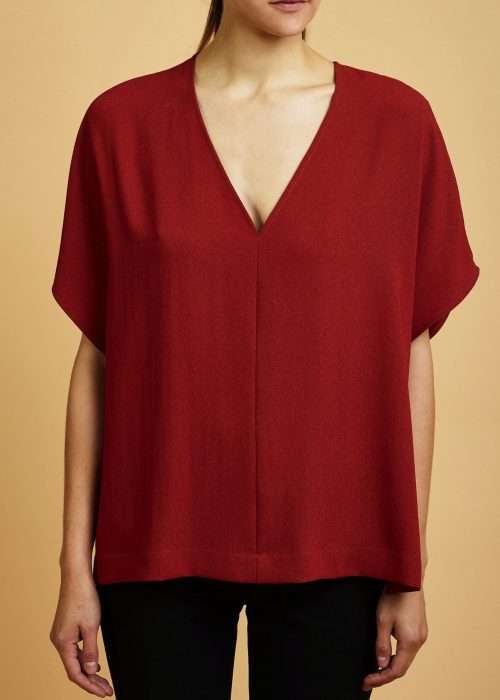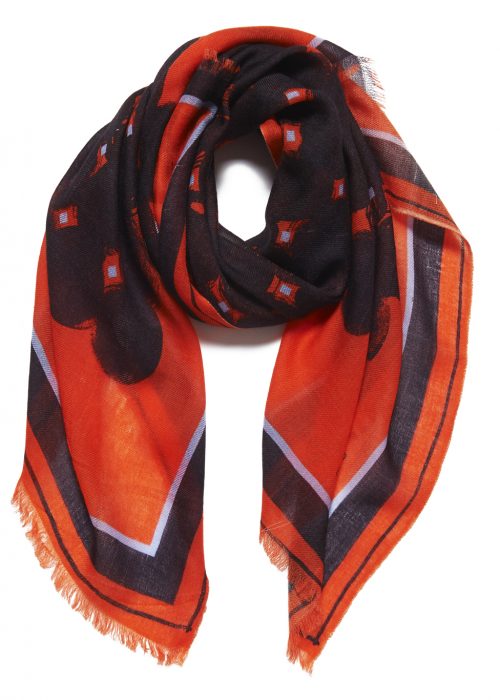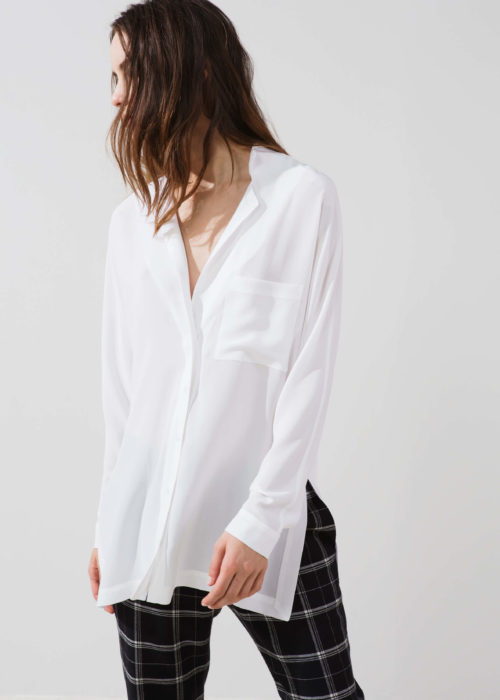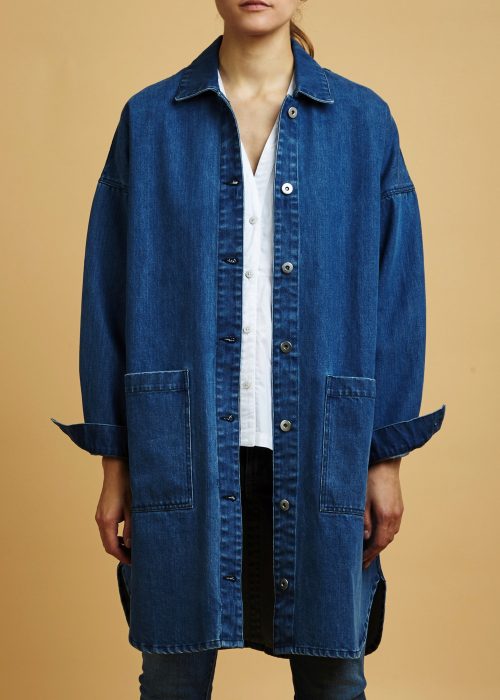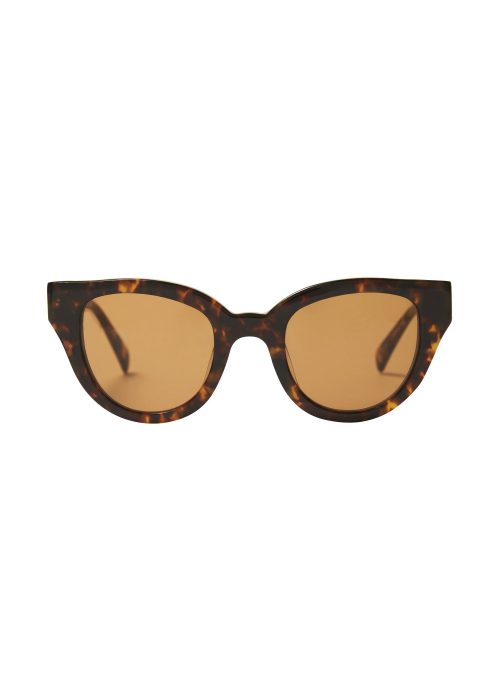FAUBOURG is proud to introduce a new video series featuring strong and inspiring women. Women we love because of their commitment to doing good, to living consciously and to bettering the lives of those around them.
In the first installment of FAUBOURG Voices, meet Yomi Abiola. The former model and journalist is now a media entrepreneur who devotes her energy and wisdom to helping women stand fully in their power.
Full interview below.
Hi Yomi. Let's start with the beginning. Where did you grow up?
So, I generally say that I was raised in London, but that I grew up on the streets of New York. I think that’s because New York can grow anybody. Either you can make it here and you can excel here or you have to go home.
What are some of your earliest, primordial memories?
I’m the eldest of three girls and we’re all a year apart. So, most of my memories are with my sisters, especially with my middle sister because we went to the same school, for what they call middle school and high school, from ages of 12-18.
Do you talk to her on the phone, your sister?
Yeah, all the time. I talk to my sister on the phone every day. Well, when she picks up my calls.
Where is she?
She’s in London.
What did you want to be when you were little?
I wanted to be an actress.
And why didn’t you do that?
Because my parents didn’t think that it was a real profession. But I really think that if you’re meant to do something and your spirit is called to do it, you will end up doing it. And I really believe that sometimes you can be haunted by it until you’re actually obedient to it. Until you’re obedient to that calling.
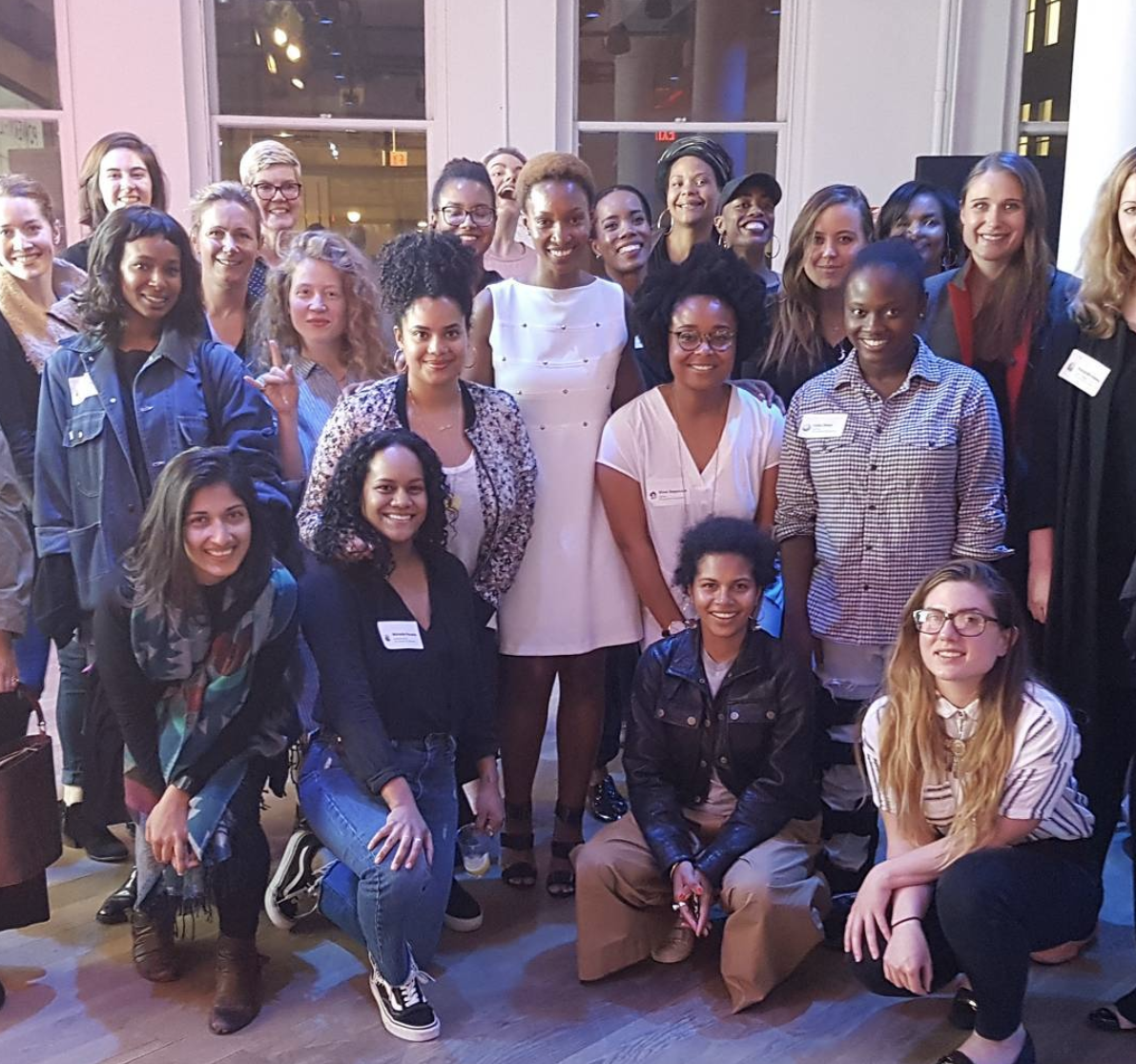
Yomi at the Femleague/Photo via Instagram
What did you end up doing? What do you do now?
Now I would call myself a media entrepreneur. So I create media, but it’s media with purpose and my purpose is to support women in standing in the fullness of their power. And I think that probably informs what I would’ve done and what I still can do as an actress, which is, I would want to do roles that really support us as women in standing in the fullness of our power. So I think that the whole journey that I’ve taken -- first I was a model, then I became a journalist, and I use that journalism now in my work with women -- I think that the whole path actually has been perfect because it has shown me how I want to do the work that I’m called to do, and what the work should be about.
What’s most rewarding about my purpose -- because I don’t see it as work, I see it as purpose -- is that it demands that I be a better human being every day. It demands that I show up for myself and for others. It demands that I am a demonstration of what I desire to see in the world.
What are some of the things that motivate you in the work that you do?
Well, I think the thing that motivates me the most is the knowledge that if we are to evolve as a human species then that requires for women to be fully standing in their power. It’s not going to happen through them being dominated. It’s not going to happen through us having arguments about who’s the lesser of the sexes. I really, truly believe that men haven’t awakened to the value that exists through women standing in their power. They have allowed themselves to stay in a place of threat and in a place of fear, and those are all very small places to stand, as opposed to us really opening our eyes and seeing that if we are to evolve as a human species it means that women must stand fully in their power. We must acknowledge them for that.
When did you get your calling to do this work?
Well I think maybe I would say that I was shaped into the calling because I have a very strong mother who raised us independently. And then I went to an all-girls school from the ages of 12-18, so I was shaped into that calling. Obviously I didn’t know when it was happening but you wake up and you’re like okay this is what matters to me.
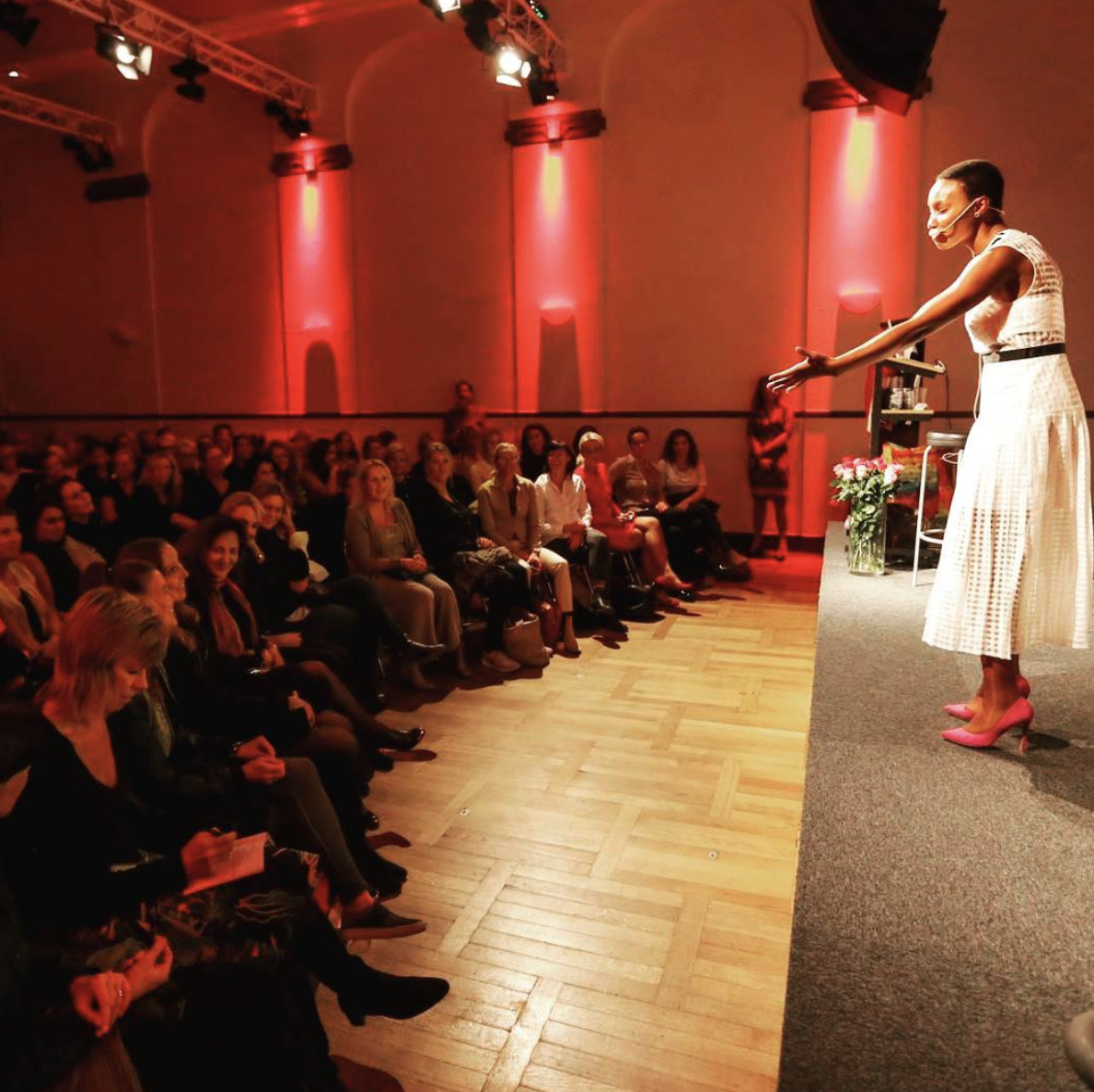
Photo via Instagram
Your mom, did you admire her growing up? Do you admire her now?
I admire my mother because she always held what I felt at the time were unrealistic expectations for myself and my sisters. But what that has really done to me, or done for me, is supported me in holding a bar of excellence. There are certain words that don’t exist in my world. Like “no” or phrases like “not possible” don’t exist for me.
What’s the most difficult thing about your work?
The most difficult thing about my work is holding myself accountable and actually living what I speak about. I don’t want to say what I preach, but actually living what I speak about. So, for there to be alignment in what I believe, in my values, and in how I move in the world, and in being human.
How do you use your voice?
I’ve come to use my voice through my own life experience and the realization that experiences don’t have to rest in the individual, they don’t have to just impact me as an individual. They can have universal impact. And the way that I actually find the universal impact is by doing the work of asking myself “what have I learned from this experience?”, “what is the teaching from this experience?”, “what can I share from this experience?” and that is how I have come to use my voice.
What is so rewarding about your work?
I think what’s most rewarding about my purpose -- because I don’t see it as work, I see it as purpose -- is that it demands that I be a better human being every day. It demands that I show up for myself and for others. It demands that I am a demonstration of what I desire to see in the world.
There are certain words that don’t exist in my world. Like “no” or phrases like “not possible” don’t exist for me.
What do you pray for? What are in your prayers?
So in my prayers are my family members. In my prayers is the ability to recognize the miracles that happen in my life on a daily basis. In my prayers is the ability to have gratitude for all the blessings I already have. In my prayers are The United States, humanity…
Why does The United States matter so much to you?
Well because as I said to you, you know, I was raised in London but I grew up in New York. New York shaped me, the woman that I am today. So I do have an attachment to this country. I do have an attachment to the values, some of the values that I encountered here, and I also know that if this country is to truly awaken to its blessings then the contribution that it can make to the world is incredible.
I find the opportunity that women have to create and recreate themselves for their entire lives, beautiful! I find that beauty isn’t just in physicality but it’s in spirit, in behavior, in interaction, in essence. I find that to be beautiful.
What has moved you recently?
That’s actually a good question. My husband meeting me outside the subway station yesterday. (Laughter.) That moved me.
What do you find beautiful about women?
I find the opportunity that women have to create and recreate themselves for their entire lives, beautiful! I find that beauty isn’t just in physicality but it’s in spirit, in behavior, in interaction, in essence. I find that to be beautiful.
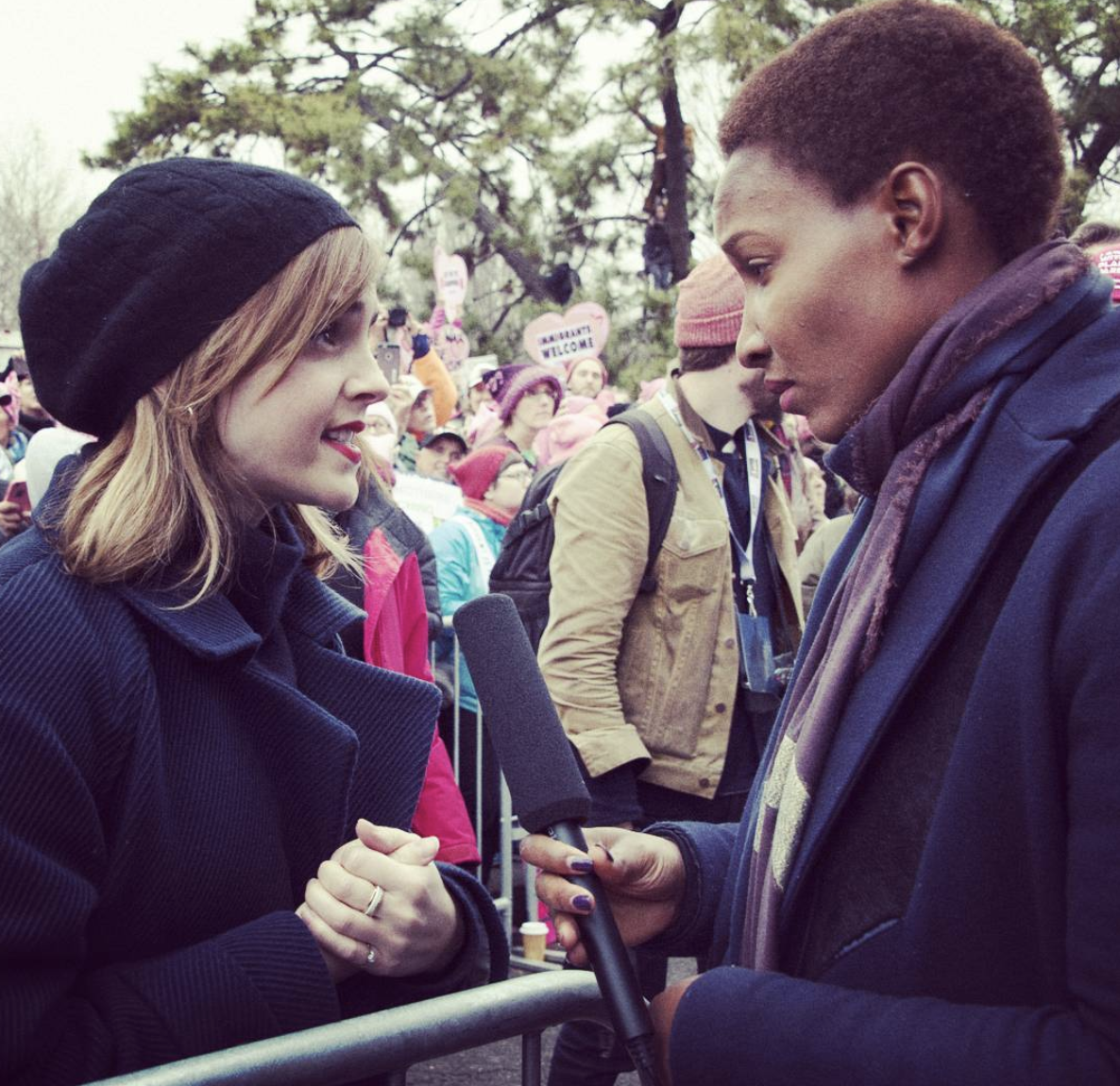
Yomi covering the Women's March in DC, interviewing Emma Watson/Photo via Instagram
What do you think, if anything, holds you back?
Self-doubt. I think that if there’s anything that holds me back, it’s self-doubt.
And how do you overcome that?
I first admit it to myself. I first admit the fact that I’m experiencing self-doubt, or that I’m afraid of how the work that I have or the contribution that I have may be received. That can hold me back. And sometimes the need to be liked, whether conscious or unconscious.
Do you remember the first time you felt like a woman?
Oh gosh, that’s such an interesting question. Wow, when is the first time I felt like a woman? I don’t know, I don’t know if I feel like a woman yet. (Laughter.) I don’t know. Of course I ask that people address me as a woman but there are still so many parts of me that feel like a little girl.
Can you tell me something nobody knows about you?
Something that nobody knows about me. Nobody? Wow. I guess I’m not that good at keeping secrets. (Laughter.)
__________________
Interview by Georgina Richardson. Cinematography and Edit by Maggie Marguerite Studio.
Like this story? Sign up for more.
MORE STORIES
-
The Future of Fashion Is Sustainable at MoMA
-
Before You Buy: Ask Yourself These 4 Questions To Avoid Fashion Waste
-
MEET: Mengly Hernandez of LINEA Germania
-
5 Films That Will Inspire You to Be More Conscious
-
MEET: Carla Robertson, designer of eyewear brand Carla Colour
-
Five Minutes with Artist Maryam Ego-Aguirre
-
MEET: Nicole Heim of New York Label Cienne
-
Travel: How I Made My Tulum Experience Authentic
-
What You Should Know About Sustainable Fashion
-
MEET: Painter Cassi Namoda

